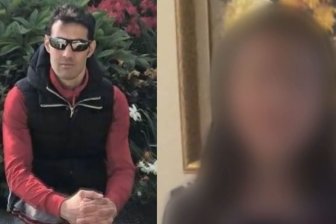A former RCMP superintendent says the Liberal government is passing the buck by insisting it’s up to Canada’s national police force to decide what to do about parliamentarians accused of helping foreign states.
“This, in my view, is total deflection,” Garry Clement told Mercedes Stephenson in an interview with The West Block. “The laws are not there right now.”
Last Monday, a report from the National Security and Intelligence Committee of Parliamentarians (NSICOP) alleged that sitting federal politicians are “witting” participants in foreign interference schemes.

The committee did not name names, and the Liberal government is resisting calls to release their identities, citing concerns about sharing sensitive intelligence information.
On Thursday, opposition MPs at a House of Commons committee pressed Public Safety Minister Dominic LeBlanc to name names, but he refused, saying it would be “simply irresponsible.”
LeBlanc said the RCMP will decide whether to investigate and lay charges, adding that is the process in a rule-of-law democracy.

Clement, who spent 30 years with the RCMP, says the legislation is not in place to bring ‘witting’ collaborators to justice.
The email you need for the day’s
top news stories from Canada and around the world.
“We need our politicians, at least somebody there to show some leadership and not put their head in the sand as they are today and say, ‘Well, see, RCMP has (the) responsibility and we’ll continue as we have always.’”
The NSICOP report drew a similar conclusion about the difficulty of prosecuting parliamentarians suspected of colluding with foreign states.
“Some (of the activities) may be illegal, but are unlikely to lead to criminal charges, owing to Canada’s failure to address the long-standing issue of protecting classified information and methods in judicial processes.”
Should the individuals be named?
Since the release of the NSICOP report, the government has faced mounting pressure to reveal the identities of the federal politicians who “wittingly” aided foreign governments. It’s not clear which parties they belong to, how many parliamentarians are involved, or if they’re sitting in the House of Commons or Senate.
LeBlanc, along with NSICOP chair David McGuinty, said they can’t make the names public because they’re bound by Canada’s official secrets law, the Security of Information Act, and risk prosecution.
But Clement says he “strongly believes” Canadians have a right to know.

“My reaction to the Liberals is, shame on you for not (releasing the names) as politicians, shame on you, prime minister.”
University of Ottawa national security professor Thomas Juneau also stressed the need for transparency but said releasing names is “complicated.”
“The lack of transparency here is casting a shadow on the system as a whole,” he said. “That being said, there are privacy issues, there are classification issues, there are ongoing investigations.”
Juneau suggests a certain threshold must be met before releasing the information.
“Where’s the minimal bar to be transparent when you have suspicions, but no proof, where a wrong accusation could seriously damage not just the career, the overall life of an individual?” he asked.
With the House of Commons expected to rise in a few weeks, Juneau is urging the government to pass Bill C-70 as quickly as possible.
The Liberal government tabled Bill C-70, a sweeping piece of legislation meant to tackle foreign interference, which would include a registry of people in Canada acting on behalf of foreign governments.
“We need a much more serious national security culture in Parliament,” Juneau said.
— with files from Alex Boutilier
© 2024 Global News, a division of Corus Entertainment Inc.










